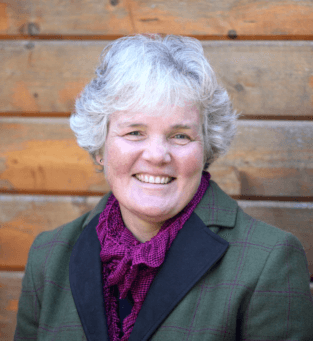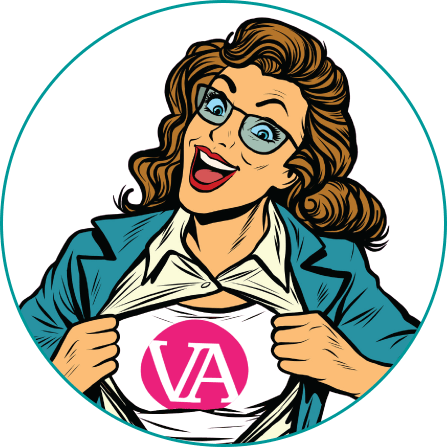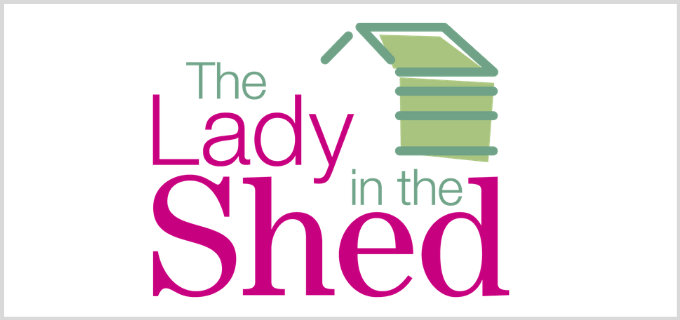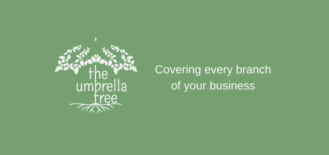This is a Virtual Assistant case study and interview with Sarah Liddle. Providing small businesses with tech and admin support, Sarah lives with her husband, a flock of sheep and a terrier called Henry on a smallholding on the Staffordshire / Derbyshire border and has been running her VA business The Lady in the Shed since April 2016.
What did you do for a living before you became a VA?
I’ve always worked in agriculture, and still do as I also run a smallholding with my husband, keeping cattle and sheep. However, I am also a qualified veterinary nurse, having worked in practice for a number of years, especially enjoying large animal and equine work.
I spent a number of years working in marketing for a university and, following the rural theme, I also latterly was employed as office manager for an arboricultural and tree surgery company.
When did you first hear about VAs or became aware they even existed?
I probably first heard about the VA industry in 2014 or 2015 through Susan Mershon, The Techie Mentor, in America and then I came across Joanne Munro in the UK. This was refreshing as it can be difficult to relate American advice to a micro business in the UK.
What was the trigger for you becoming a VA?
At the beginning of 2016, I decided that I’d had enough of working for someone else and after having seen friends go through some serious life-changing events, I started to question what life was all about and where my own life was heading and decided to go it alone.
Although I now work harder than I’ve ever done, I’m doing it for me. Making my own mistakes and creating my own success.
Did you just leave your job or start VA-ing gradually?
I just left my job with no clients and have been busy ever since. However, I did have some savings behind me so I had a bit of a financial safety net, although I have never needed to use it.
Where did you find the help or advice you needed when setting up?
I did the DIY VA course and a couple of courses from The Techie Mentor as well as referring to free resources such as The VA Handbook website.
I also had a mentor from the local Chamber of Commerce for a short while but to be honest I didn’t find that very useful as some of the advice I was given did not sit well with me and wasn’t really what I wanted to do.
It’s difficult to have accountability from a mentor when you don’t really want to do what they’re telling you to do.
Maybe that’s just me, but I’ve found my own way.
In fact, some of my biggest business mistakes have been when I acted on advice from someone else (generally who I was paying). I’m now much more likely to go with what feels right for me.
There are so many people out there telling you what you should be doing, and you can’t do it all, so I like to keep it simple and go with my gut – but that takes courage when you’re starting out.
Who was your first client and how did you get them?
One of my first clients was a colleague from the tree surgery company where I worked in my final employed role. He followed me into self-employment shortly after I left the company and we carried on working together as before.
In fact, most of my first clients are still with me.
I found them by following the advice given in the DIY VA course – I decided who I wanted to work with, found out where they were, followed them on social media, found out what their pain points were and then contacted them personally to set up an introductory phone call.
Do you have a niche?
I mainly work with small businesses in the rural or wellbeing/coaching sectors providing tech and admin support, working with WordPress, email marketing platforms, online courses and memberships etc.
However, for some clients, we start off doing one thing and then they say “Can you do this or that?” and then I’ve taken on other work for them.
For example, I look after the admin for two holiday cottages in Wales for one client. I look after bookings, maintenance, health and safety certificates, online listings etc but I started off supporting her coaching business.
How would you say you were different from other VAs?
As I have lived in a rural location all my life and worked in agriculture all of my adult life, I have a deep understanding of the countryside and its challenges and the challenges of people living and working there, which gives me a head start when working with rural businesses.
However, I can also appreciate the financial challenges and time constraints clients have when running their businesses. I don’t have children but I run a smallholding, as well as my VA business, so have daily livestock jobs and then there’s calving time, lambing time and haymaking to fit in too.
I consider each of my client’s needs individually and (apart from my personal working practices) I don’t have a one size fits all approach with regards to the systems and processes that are used when working with each client. After all, some have six-figure businesses but others don’t.
 What’s the best thing about being a VA?
What’s the best thing about being a VA?
Flexibility is probably the best thing about being a VA, which is especially important at lambing or calving time or when we are making hay etc. And not having a commute.
In a way, working as a VA is similar to working in agriculture in that it’s a lifestyle rather than a job.
By this, I mean that the work has to be done. Some work has to be done at a specific time and some work has to be done when I don’t really want to do it.
But apart from that, it’s up to me to organise my day to suit myself and make sure that everything gets done.
My life is outside and I’ve been able to be outside much more. Big skies, beautiful trees, sheep and a terrier called Henry, what more could I ask for?
What’s the hardest thing about being a VA?
One of the most difficult things about being a VA is managing my work and life balance as between VAing and running the smallholding, there isn’t much time for downtime.
However, I am fortunate to live in a lovely part of the country with big skies and lots of trees so just getting outside, going for a walk and breathing fresh air can be a tonic.
How virtual are you?
Generally, I only work from home, especially as most of my clients don’t live close to me. I do sometimes meet clients for meetings in coffee shops, although this is rare.
I tend not to meet clients in their own home or office as I have been in situations where I have wanted to take control of a situation and escape but feel I can’t because I’m at the client’s home and it would be rude.
I don’t want to be treated as an employee so I would never actually go into a client’s office to work.
How do you find your clients?
I now find that most of my new clients come through word of mouth. I have a loyal band of existing clients, many of whom have been with me for several years.
So while I do help clients with marketing, I don’t have a client attraction strategy with a sales funnel and all that entails.
I prefer to build relationships with people through networking or being helpful in Facebook groups etc so that when they are thinking they need further support with their business, they think of me.
How do you manage your personal/work life balance?
With difficulty – this is probably my biggest challenge!
Running both my VA business and a smallholding and having been brought up in a traditional household where the wife does the household chores and the garden, I find there’s very little time left for me.
This has been especially hard during the pandemic as usually we have one week a year where we get someone in to look after the animals and then go somewhere sunny to do nothing – but that hasn’t been possible for over a year now.
I guess I’m lucky in that I enjoy what I do, especially working with livestock, so sometimes going out to feed the animals can be the break I need.
How do you manage your clients, their work and their expectations?
I prefer to have long-term clients so I can get to know them and their businesses and know what needs to be done and how they like things done.
I try to work with them in a way that works for them so with one client, it may be necessary to use projects in Asana whereas another may prefer email or WhatsApp.
As long as I keep them informed of where I am with everything they need me to do, it works very well for all concerned. However, good communication is key – and flexibility when it’s needed to get the job done.
What technology, websites, or apps are invaluable to your working life?
LastPass is probably the most important tool I use in my VA business. It’s amazing how many passwords I need to use each day and I would never remember all of them. As long as I have my laptop, I have access to the passwords I need.
I also use Toggl on a daily basis for recording time I spend on tasks and then I can download the report for each client at the end of the month and send it with my invoice.
One of my clients has found this particularly useful when he’s pricing his jobs because he now has a good idea of how long things take me which means he knows roughly how much of my time to factor into his quotes.
I’m a member of several Facebook Groups, especially for tech/tools I use with my clients, which are an essential source of support. When something doesn’t work as I want it to, there’s usually someone else that has had the same issue!
Would you do anything differently if you had to start again?
I probably wouldn’t do anything differently if I was starting out again. My business is always evolving and the journey I’ve taken is part of the business I’ve created.
However, I would be a bit more wary of other people saying “You have to do this or that to be successful” and then doing it. I would go with my gut and integrity more.
What advice would you give to someone considering becoming a VA?
Just go for it. The world of work is changing and there are more opportunities for working virtually out there at the moment than there has ever been before.
However, it’s a ‘noisy’ place so it’s important to get noticed by being a bit different. Whether that’s how you look, what you enjoy, who you work with, your niche… just something!
Connect with Sarah Liddle on LinkedIn
Ready to set up your own business?Then follow in Sarah’s footsteps by signing up for my flagship DIY VA course. With lifetime access and an incredible trainee-only support group, I hold your hand through the entire process and support you all the way. |
 |





Leave a Reply